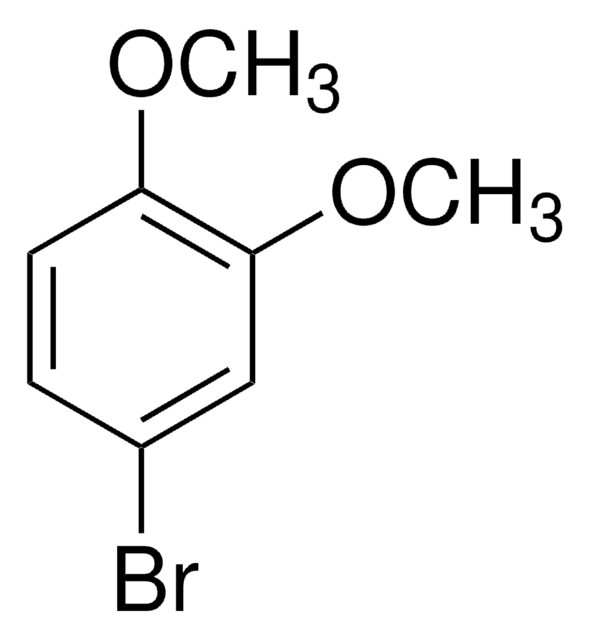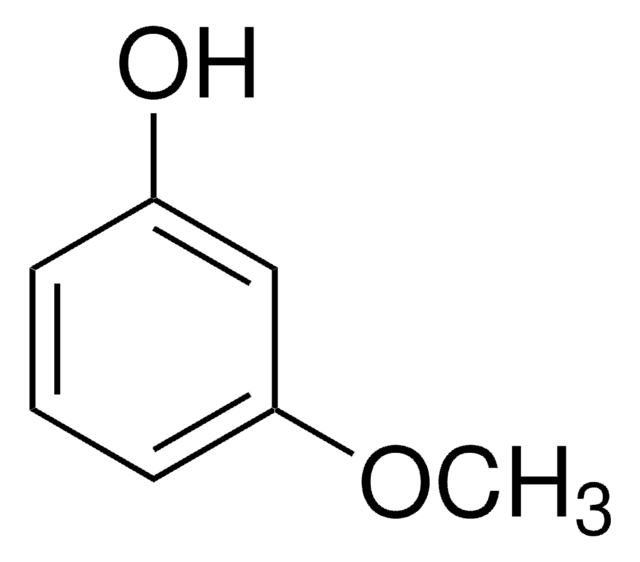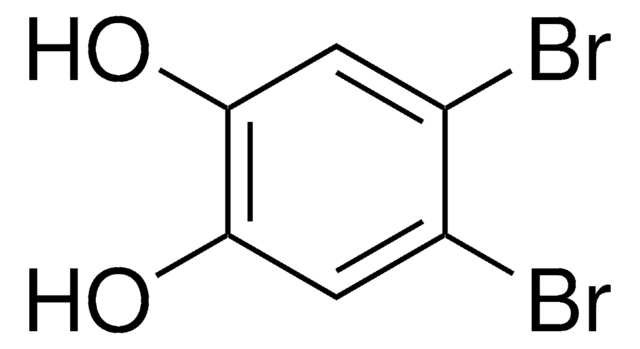148520
4-Chlorocatechol
97%
Iniciar sesiónpara Ver la Fijación de precios por contrato y de la organización
About This Item
Fórmula lineal:
ClC6H3(OH)2
Número de CAS:
Peso molecular:
144.56
EC Number:
MDL number:
UNSPSC Code:
12352100
PubChem Substance ID:
NACRES:
NA.22
Productos recomendados
assay
97%
mp
90-94 °C (lit.)
functional group
chloro
SMILES string
Oc1ccc(Cl)cc1O
InChI
1S/C6H5ClO2/c7-4-1-2-5(8)6(9)3-4/h1-3,8-9H
InChI key
WWOBYPKUYODHDG-UHFFFAOYSA-N
Categorías relacionadas
General description
4-chlorocatechol was a major degradation product of 4-chloro-2-aminophenol (4C2AP). The degradation of 4-chlorocatechol was catalyzed by cphA-I enzyme.
signalword
Danger
hcodes
Hazard Classifications
Skin Corr. 1B
Storage Class
8A - Combustible corrosive hazardous materials
wgk_germany
WGK 3
flash_point_f
Not applicable
flash_point_c
Not applicable
ppe
Eyeshields, Faceshields, Gloves, type P3 (EN 143) respirator cartridges
Elija entre una de las versiones más recientes:
¿Ya tiene este producto?
Encuentre la documentación para los productos que ha comprado recientemente en la Biblioteca de documentos.
Los clientes también vieron
M Klemba et al.
Applied and environmental microbiology, 66(8), 3255-3261 (2000-08-05)
The tcbR-tcbCDEF gene cluster, coding for the chlorocatechol ortho-cleavage pathway in Pseudomonas sp. strain P51, has been cloned into a Tn5-based minitransposon. The minitransposon carrying the tcb gene cluster and a kanamycin resistance gene was transferred to Pseudomonas putida KT2442
A Farrell et al.
Biodegradation, 10(5), 353-362 (2000-06-28)
A mixed microbial community, specially designed to degrade a wide range of substituted aromatic compounds, was examined for its ability to degrade mono-chlorophenols as sole carbon source in aerobic batch cultures. The mixed culture degraded 2-, 3-, and 4-chlorophenol (1.56
Yingxun Du et al.
Journal of hazardous materials, 139(1), 108-115 (2006-07-28)
The role of oxygen in the degradation pathway of 4-CP by Fenton system was investigated in this paper. The degradation of 4-CP, changes of Fenton reagent's concentration and formation of the intermediates in Fenton/O2 system were respectively compared with those
J K Kim et al.
Chemosphere, 69(5), 689-696 (2007-07-03)
The presence and impact of hydroxyl radicals generated via the catalytic decomposition of H(2)O(2) over heterogeneous copper catalysts were investigated by using two detection methods, an electron spin resonance-spin trapping method and a chemical probe method. Detection of the (5,5-dimethyl-1-pyrroline-N-oxide)-OH
A Farrell et al.
Journal of industrial microbiology & biotechnology, 28(6), 316-324 (2002-05-29)
A bacterium, CP1, identified as Pseudomonas putida strain, was investigated for its ability to grow on and degrade mono-chlorophenols and phenols as sole carbon sources in aerobic shaking batch culture. The organism degraded up to 1.56 mM 2- and 3-chlorophenol
Nuestro equipo de científicos tiene experiencia en todas las áreas de investigación: Ciencias de la vida, Ciencia de los materiales, Síntesis química, Cromatografía, Analítica y muchas otras.
Póngase en contacto con el Servicio técnico












